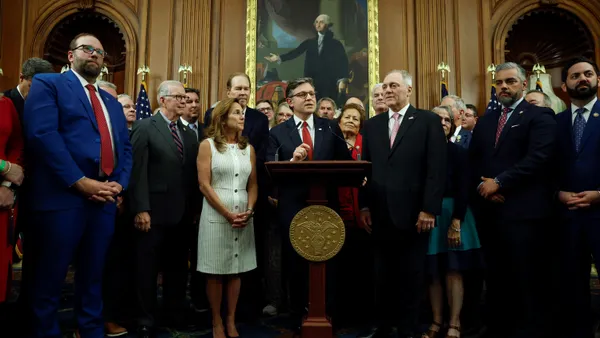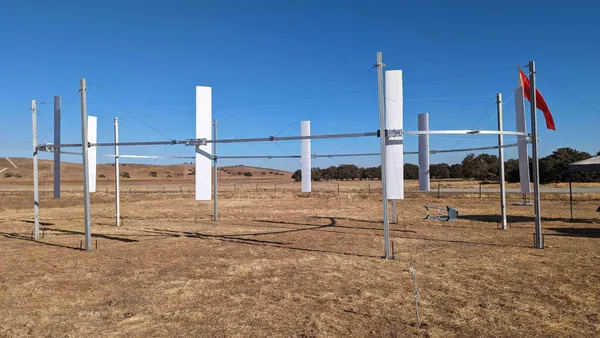Dive Brief:
- A Maine Superior Court judge dismissed a case challenging the constitutionality of the wind power moratorium imposed by Republican Gov. Paul LePage’s January executive order on Friday.
- Renewable energy advocates have tried to challenge the legality of the order, which halts wind turbine permitting in the state. Maine is currently leading in Northeast wind generation.
- While the judge’s opinion agrees that LePage’s executive order conflicts with the wind permitting state law, he said the environmental and renewable energy groups haven’t proven harm for any incoming wind turbine projects.
Dive Insight:
With LePage’s term coming to an end, renewables advocates and the Northeast wind industry are watching for signals from the four gubernatorial candidates that the future governor will revoke the executive order.
Superior Court Justice Andrew Horton’s decision leaves the executive order subject to legal challenge by wind power developers whose project application was blocked by the order. Horton suggested that the two groups that raised the legal challenge — the Conservation Law Foundation (CLF) and the Maine Renewable Energy Association — could still brief the legal issues in the case.
"For this judge in this case, it appears that you have to be a developer who submits a permit application to have suffered harm, and thus to have standing," Phelps Turner, CLF attorney, told Utility Dive via email, adding that CLF is still considering its options regarding the executive order.
LePage’s lawyers asked the judge earlier this month to toss the legal challenge, saying that the administration is not following the executive order and the order has not yet blocked wind projects.
Maine’s onshore wind power developments grew quickly with in-state and regional power purchase agreements (PPA).That regional interest could be impacted by policy decisions like LePage’s moratorium, renewable energy advocates say.
However, there are a lot of other factors that drive PPAs in the Northeast region, such as the recent progress of Massachusetts, Rhode Island and Connecticut to select offshore wind developers.
CLF argued that LePage’s order has harmed Maine’s developers and other businesses tied to wind power development since going into effect, "including the chilling effect on wind power development," Turner wrote.













